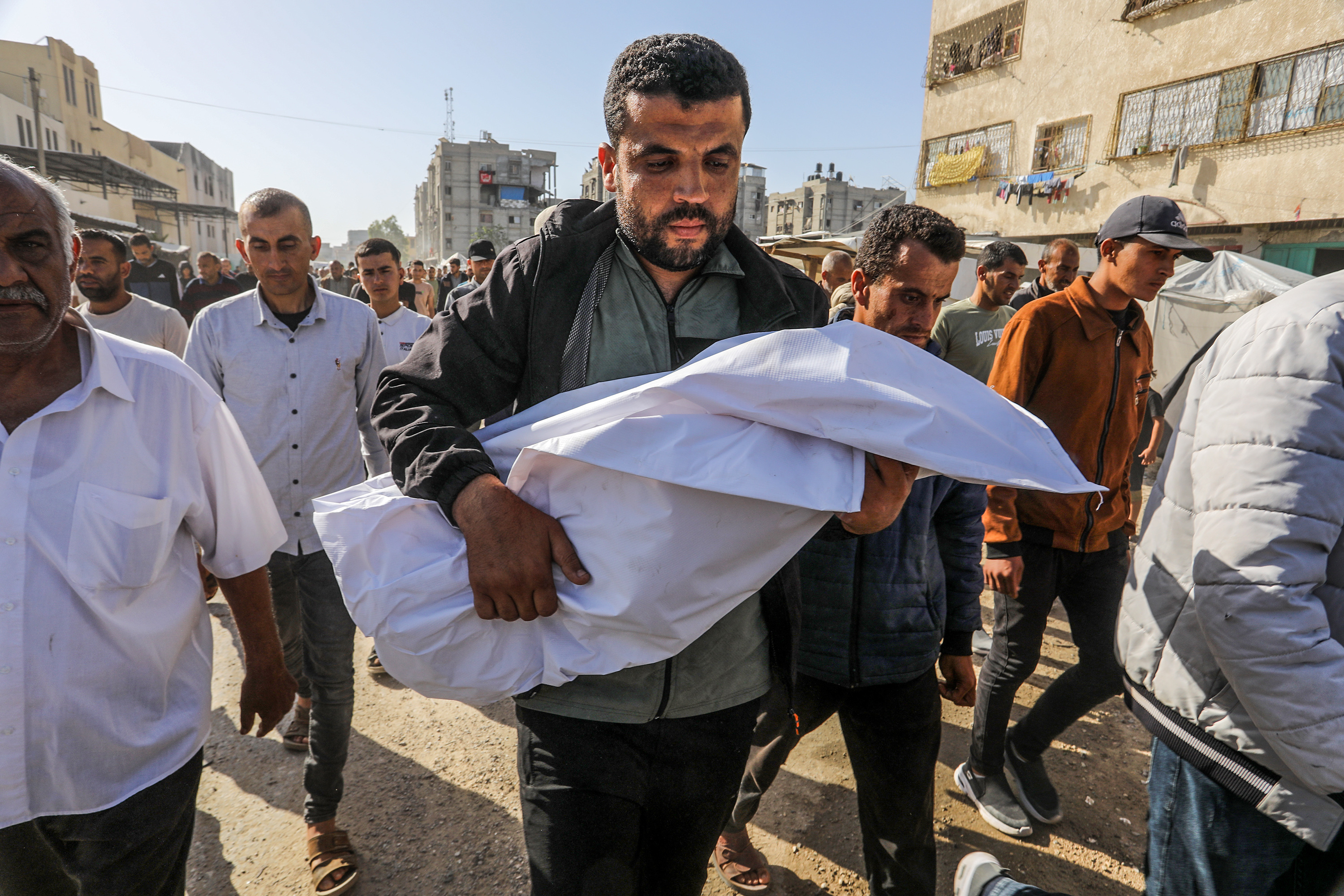How to Write About Palestine

Photo:Abed Rahim Khatib/Anadolu/Getty Images
Begin on October 7th, 2023.
Nothing important happened before this date.
History began on October 7th.
Never say the word occupation and avoid using terms like, “apartheid,” “segregation” and “illegal settlements.”
Avoid writing about the wall. If you do, preface its existence by talking about terrorism and security.
Terrorism and security are very important words. Use them a lot in reference to Palestinians.
Remind your audience that Palestine is a “complicated” situation.
Avoid the word genocide — for legal and technical reasons of course.
If you must use the word, put it in quotes.
Do not describe the escalation of Israeli hostility as an assault on the people of Gaza.
Instead, use words like “war,” and “conflict,” because that makes it easier to avoid the g-word.
When reporting on the dead, always use the passive voice and don’t mention how they were killed, or by whom.
As often as possible remind your readers of October 7th .
When writing about Palestinians, do not forget to center Israeli feelings. Although the Israeli miliary is dropping bombs and killing Palestinians, the real story is about the persecution of Israelis in the wake of October 7th.
Avoid making everything even more complicated pointing out that antisemitism is a European invention.
Writing about Palestine mainly involves writing about Hamas.
Writing about Hamas is almost as important as writing about October 7th.
Hamas is a person, a thing, a monster, a ghost.
Hamas is in every home.
Hamas is in tunnels and hospitals.
Hamas is in tents sleeping next to patients in wheelchairs.
Hamas is in ambulances that are buried with paramedics.
Hamas infiltrated World Food Kitchen and all the soup kitchens and schools, even the children’s souls have been infiltrated by Hamas.

Photo: Majdi Fathi/NurPhoto/Getty Images
The October 7th Hamas attack can be described in any of the following ways:
- horrific
- brutal
- gruesome
- murderous
- shocking
- atrocious
- harrowing
- graphic
- terrifying
On the other hand, when writing about attacks on Palestinians no adjectives should be used.
It’s better to simply write something like, “More than 90 killed in Gaza strikes.”
You do not want readers to think you’re taking a side.
When writing about Palestine, do not let facts get in the way of telling a good story. To this end, ignore Palestinian sources. They may be biased.
On the other hand, the Israeli military is a highly credible source of information.
If the Israeli army says nothing happened, then nothing happened.
When the army claims their troops didn’t rape Palestinian women or use civilians as human shields, or shoot children in the head with sniper guns, continue to publish their denials without comment.
Linking countries that fund weapons to the armies that use them fosters transparency.
So, when you write about attacks on Tel Aviv, it is important to mention that the missiles were fired by Iran-backed Hezbollah.
Do the same when you write about the Houthis.
Do not follow the same protocols when it comes to Israel.
The American-backed Israeli army makes its own decisions about when to drop American and British bombs.
When talking about Muslim communities, throw around phrases like “terrorist hotbed,” and “Hamas sympathizers.” This works even when those communities are in the UK or America.
Repeatedly demonize people who peacefully protest for Palestine.
Center the voices of people living in Western countries who feel unsafe when they hear the phrase “from the river to the sea.”
Don’t ask your readers to imagine how unsafe children actually living, wounded and dying in Gaza and the West Bank feel.
Do not ask them to think about whether mothers feel safe as they enter labor.
Do not write one single paragraph asking whether fathers burying their children have a right to feel unsafe in Gaza.
When writing about Palestine, try not to zoom into individual stories or write about the intimate details of people’s lives. Keep your focus on Hamas militants.
In fact, when writing about Palestine try not to interview Palestinians at all. They might be Hamas or Hamas sympathizers.
If you must interview a Palestinian, always begin by asking them to condemn October 7th.
After this, be sure to ask them to confirm that Israel has a right to exist.
Ask the same leading questions of anyone who looks like an Arab, or is Muslim, or who seems to sympathize with Palestinians.
Sometimes they will throw the question back at you and ask if you think Palestine has a right to exist. Ignore this line of questioning as it only leads to trouble.
When all else fails, remember:
Begin on October 7th, 2023.
Nothing important happened before this date.
History began on October 7th.
This piece borrows its satirical form from How to Write About Africa by the late Kenyan writer Binyavanga Wainaina. Many of the details and critiques of the media examples are from the excellent report put out by the Australian Islamophobia Register in December 2023. Written by Dr Susan Carland, A War of Words: Preliminary Media Analysis of the Gaza War is a great resource. There are many articles online that can help you read more critically. Search “media bias Palestine” and you’ll find dozens of reports.
The post How to Write About Palestine appeared first on The Intercept.
